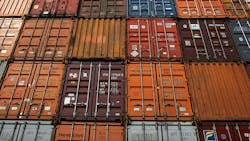Tariffs Prompt US Manufacturers to Review Plans: Fed Survey
America’s escalating trade dispute with China and other trading partners has prompted almost a fifth of U.S. businesses including about 30% of manufacturers to review their capital spending plans, according to a study by the Federal Reserve Bank of Atlanta.
The Survey of Business Uncertainty, conducted with economists Nick Bloom of Stanford University and Steven Davis of the University of Chicago Booth School of Business, found that businesses were primarily putting their spending plans under review, with relatively few making firm decisions to cancel or postpone investments.
“These findings suggest that tariff worries have had only a small negative effect on U.S. business investment to date,” Atlanta Fed Research Director David Altig wrote on a blog posted Tuesday on the bank’s website. “Still, there are sound reasons for concern.”
The survey, which drew 330 responses, was conducted July 9-20. Over 200 responses were from service-providing companies, which are typically less engaged in international commerce than manufacturing firms.
“Trade policy tensions between the United States and China have only escalated since our survey went to field,” Altig and his co-authors wrote. “The negative effects of tariff worries on U.S. business investment could easily grow.”
The U.S. and China are stepping up their rhetorical attacks as both sides prepare for an extended trade battle. President Donald Trump claimed over the weekend that the U.S. has the upper hand in the fight, following Beijing’s Friday release of a tariff list designed to retaliate against the U.S. threat to impose new duties on $200 billion of Chinese imports.
While the Federal Reserve remains upbeat on the outlook for U.S. growth, which grew at a 4.1% pace in the second quarter, a number of officials including Atlanta Fed President Raphael Bostic have warned that the trade dispute is a downside risk for the economy.
St. Louis Fed President James Bullard said in June he’s hearing “full-throated angst” from regional companies, while Bostic said businesses are “extremely concerned about the prospects of a trade war.’’
Trump’s threat of higher tariffs is intended to bring China back to the negotiating table for talks over U.S. demands that China stop stealing the country’s intellectual property and to narrow the trade deficit by buying more American goods.
By Steve Matthews
About the Author
Bloomberg
Licensed content from Bloomberg, copyright 2016.
